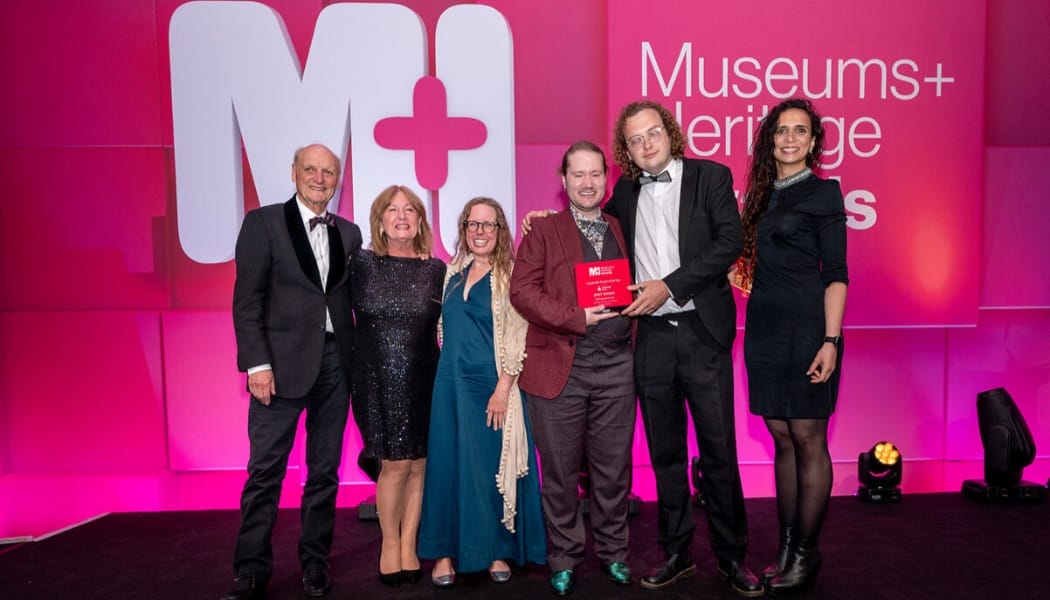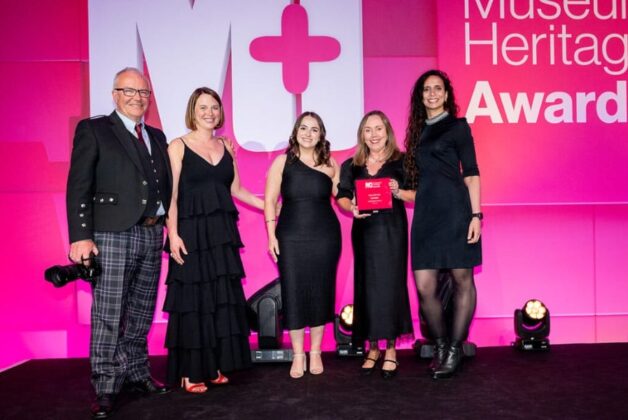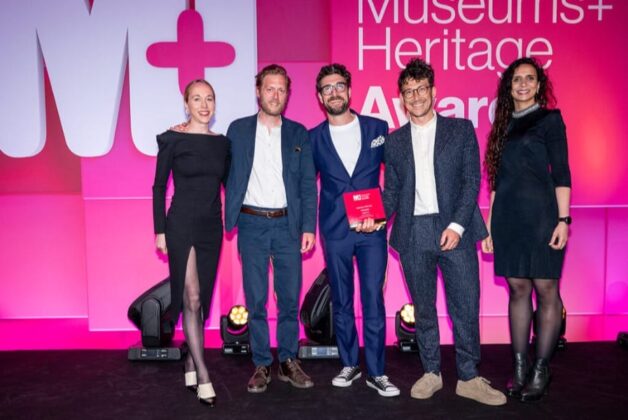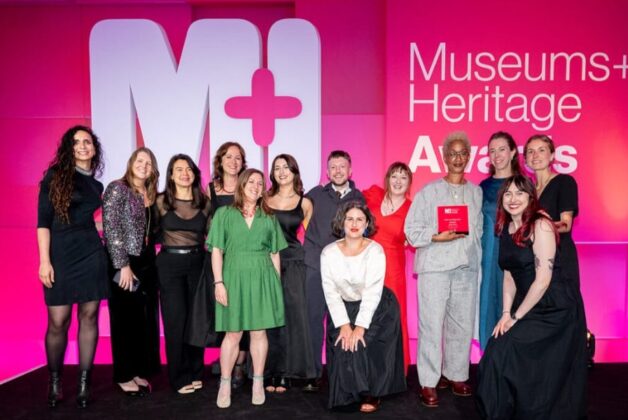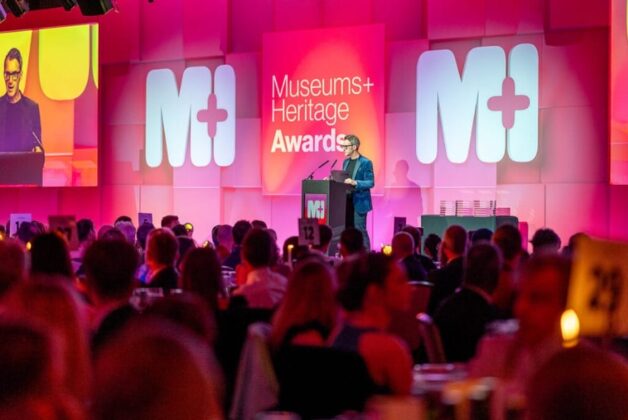Museum director explains how volunteer-led organisation transformed glass industry’s carbon footprint and attracted international attention.
When Stourbridge Glass Museum was announced as joint winner of ‘Sustainable Project of the Year’ at the Museums + Heritage Awards in May 2025, it marked a major achievement for a museum that had only opened its doors three years earlier.
Alexander Goodger, director at Stourbridge Glass Museum, reflects on how a largely volunteer-led organisation in the West Midlands is leading the sector in sustainability, transforming the glass industry’s environmental impact, and proving that groundbreaking ideas can come from anywhere.
The award, sponsored by The National Lottery Heritage Fund, was shared with Railworld Wildlife Haven in Peterborough. Both organisations were recognised for their innovative approaches to volunteer-led action, recycling exhibition materials, and promoting energy efficiency.
The judging panel praised Stourbridge Glass Museum’s approach and its Greener Glass exhibition as having “embedded sustainable technology throughout”.
The judges noted the museum’s exhaustive work to transform the carbon position of a high energy traditional craft resulting in an impressive, world first carbon neutral glass studio.
For a museum competing against major institutions including the Natural History Museum’s Urban Nature Project, the National Trust’s Good Journey scheme, and Perth Museum’s Waters Rising exhibition, the win was both unexpected and transformative.
“Beating institutions like the Natural History Museum was a powerful reminder that impact is not solely determined by size or budget,” Goodger told Advisor.
“It is about the power of your ideas, your commitment to your mission, and your connection to your community. For a museum that only opened its doors in 2022, this award was a massive boost of confidence. It told us, and the wider sector, that what we are doing here in the Black Country is not just relevant, it’s leading the way.”
The Underdog’s Advantage
Goodger is passionate about encouraging smaller museums to enter awards, even when they doubt they can compete with household names.
“Your size is your superpower, not your weakness,” the director said. “Large institutions have vast resources, but you have agility, passion, and a unique story.
Awards panels aren't just looking for the shiniest, most expensive project; they are looking for innovation, genuine impact, and authentic stories. Your grassroots perspective, your deep community ties, and your ability to pivot and innovate out of necessity are precisely what set you apart.
The Museums + Heritage Awards recognition has been transformative beyond the trophy itself: “It has opened doors to national conversations, solidified our reputation as a key player in sustainable exhibitions, and, most importantly, has been a resounding vote of confidence for our team and our region.
“It proves that groundbreaking ideas can come from anywhere. The Black Country is a hub of new technology and sustainable development now just as it was the heart of the global industrial revolution in the 19th century.”
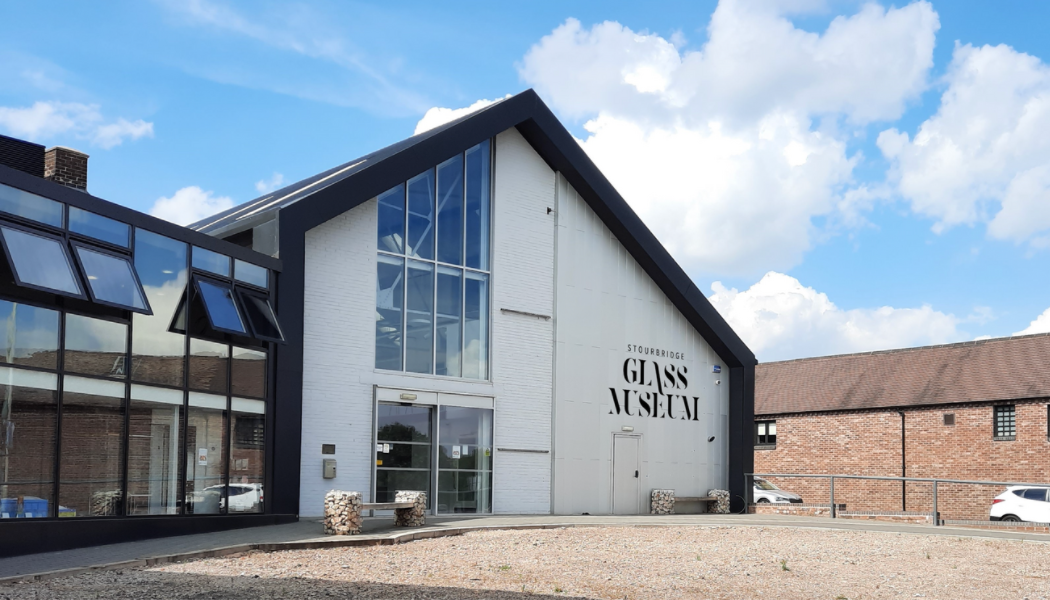
From Crisis to Innovation
The museum’s sustainability journey was born from necessity. The glass industry’s reliance on gas-fired furnaces made it particularly vulnerable during the recent energy crisis, with consequences felt across the UK’s major glass museums.
“The three big glass museums in the UK- the World of Glass in St. Helens, the National Glass Centre in Sunderland, and ourselves, all got hit hard during the gas crisis- teetering on closure,” Goodger said. “Glass furnaces and studios use a lot of energy and it is not sustainable.”
To tackle this, Stourbridge Glass Museum initiated a net zero project, installing solar panels and battery technology to reduce energy bills, and more specifically, switching to all electric equipment.
Global Impact, Local Innovation
Th museum’s approach has attracted international attention. British Glass Foundation trustee and glass artist Allister Malcolm, who operates the on-site studio that pioneered the all-electric system, has become a sought-after voice for sustainable glass practice.
“Allister Malcolm Glass Ltd inside our museum has been visited by studios and factories from all over the UK and Europe, the USA, India, and universities like Edinburgh and Loughborough who offer glass courses,” Goodger notes. Goodger himself has undertaken advisory sessions with DCMS and is delivering talks on sustainability with Museum Development Midlands.
“We have worked with these and other partners to share our best practice and groundbreaking technology,” Goodger says, emphasising the collaborative spirit driving the sector forward.
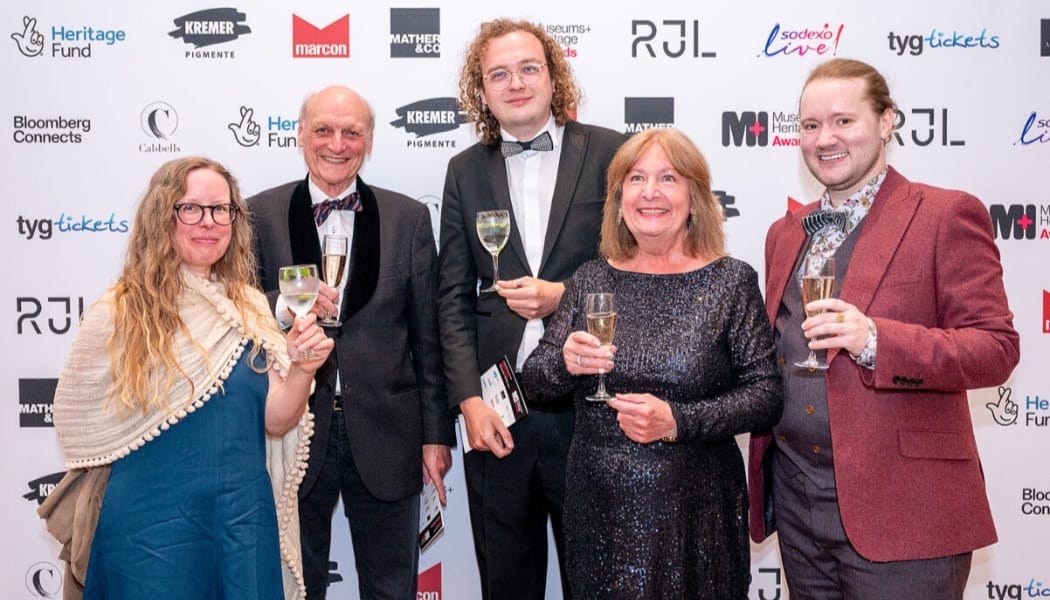
Making the Business Case for Sustainability
For museums worried about upfront investment in sustainable infrastructure, Goodger’s message is clear: the numbers work.
“The payback time is between 1 year and 8 years for some of our net zero changes, depending on the investment.” The museum received support from Museum Development Midlands, Arts Council England, National Lottery Heritage Fund, Association of Independent Museums, and Enfinium, working with sustainability consultant Dr. Russell Layberry to review the building and identify solutions.
“My advice is to ask your local Museum Development body to help you, get a sustainability consultant in, and breakdown what needs changing about your organisation and make the changes one by one,” Goodger advises. “Sustainability is one of four key investment principles for both Arts Council and National Lottery Heritage Fund and we know that not enough organisations are bothering to do these kind of projects, from our conversations with the funders. The money is out there, just apply for the funding.”
The Greener Glass Legacy
The museum’s inning Greener Glass exhibition, co-curated by students from the University of Birmingham, has resonated deeply with visitors, having won the Visitors Choice award for three consecutive years.
“People love the exhibition, and the hands-on glassmaking crafts where they can become a sustainable artist themselves!” Goodger enthuses. “We have empowered young artists and curators alike.” The exhibition, originally planned as a temporary display, has been extended until January 2026 due to popular demand, featuring recycled glass art including works created from melted car windscreens.
The success has attracted artists from across Europe eager to showcase sustainable glass work. “We are contacted constantly with artists wanting to showcase their beautiful work. We will display as many as we can!”
Building for the Future
The momentum shows no signs of slowing. The museum’s staff, volunteers and artists have been shortlisted for more than ten awards locally, regionally and nationally in 2025, with recent wins including Visit England’s Hidden Gem Accolade and Fundraiser of the Year at the Black Country Heroes Awards.
“Our staff social calendars are booked and we have four more award ceremonies in the next month. I am getting my money’s worth from this tux” Goodger joked.
Looking ahead, April 2026 will see the opening of an exhibition featuring the Churchill Memorial Screen, one of Dudley’s most famous pieces of public art and among the world’s largest glass mosaic sculptures. Weighing six tons, it will be accompanied by workshops led by award-winning glass artist Terri Malcolm, using sustainably sourced and recycled glass.
Infrastructure developments continue too: the museum has built an eco-friendly collections store made of recycled steel with electronic roller racking technology, a car park with EV charging ports, solar infrastructure on its roof, and plans to expand with new net zero buildings and open collections stores.
A Testament to local vision
Reflecting on the journey from a fire-damaged factory building into an award-winning sustainable museum, Goodger says local pride drives the museum’s plans.
“We are so proud and we hope Stourbridge is proud of us. We are a multi-award winning new eco museum, and there’s no signs of the momentum slowing.”
His advice to other organisations? “Entering awards is not just about winning, it’s about declaring your value, raising your profile, and giving your incredible team the external recognition they so richly deserve. It forces you to articulate your successes and can be a transformative moment for morale, just as it was for us. We are ecstatic!”
“To infinity… and beyond!”
Enter the Museums + Heritage Awards 2026
The Museums + Heritage Awards celebrate the very best in the world of museums, galleries and heritage visitor attractions.
Entries for the 2026 M+H Awards open Friday 31 October 2025.
Sign up to our newsletter to be the first to hear when they do.

